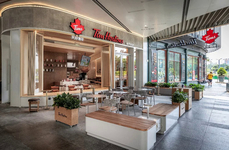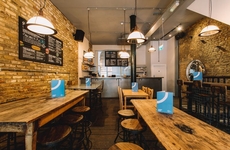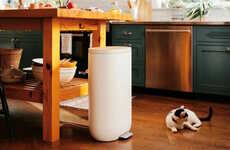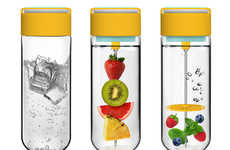
The Methane Cafe is an Eco Cafe in Japan That Trades Trash for Tea
Laura McQuarrie — July 16, 2014 — Eco
References: entabe.jp & en.rocketnews24
There are a ton of places that claim to be sustainable, but everything about Japan's Methane Cafe, including its name, positions it as an eco cafe.
It's one thing to be conscious about recycling, but it's easy to waste energy by doing things like boiling excess water or using heat for longer than is needed. The members-only cafe in Osaki uses energy from kitchen waste that guests can bring in to boil their cup of tea. Instead of paying for a cup of coffee, this is a way to have the greenest tea around, without being needlessly wasteful.
The kitchen scraps are also used as fertilizer for crops, meaning that absolutely everything can be part of a cycle that's all for the benefit of the environment.
It's one thing to be conscious about recycling, but it's easy to waste energy by doing things like boiling excess water or using heat for longer than is needed. The members-only cafe in Osaki uses energy from kitchen waste that guests can bring in to boil their cup of tea. Instead of paying for a cup of coffee, this is a way to have the greenest tea around, without being needlessly wasteful.
The kitchen scraps are also used as fertilizer for crops, meaning that absolutely everything can be part of a cycle that's all for the benefit of the environment.
Trend Themes
1. Sustainable Cafes - Explore the trend of sustainable cafes that utilize energy from kitchen waste to provide eco-friendly beverages and promote recycling.
2. Circular Economy - Discover the trend of circular economy in the food and beverage industry where kitchen scraps are repurposed as fertilizer for crops, creating a closed-loop system.
3. Energy Conservation - Learn about the trend of energy conservation in cafes, where excess water is minimized and heat usage is optimized to reduce energy waste.
Industry Implications
1. Food and Beverage - The food and beverage industry can embrace the trend of sustainable cafes by implementing energy-saving practices and repurposing food waste to create a more eco-friendly business.
2. Waste Management - The waste management industry can leverage the circular economy trend by developing innovative methods to turn kitchen scraps into valuable resources for agriculture and promote sustainable practices.
3. Renewable Energy - The renewable energy industry can seize the opportunity to collaborate with sustainable cafes, providing solutions to efficiently convert kitchen waste into energy to power cafe operations.
4.8
Score
Popularity
Activity
Freshness























